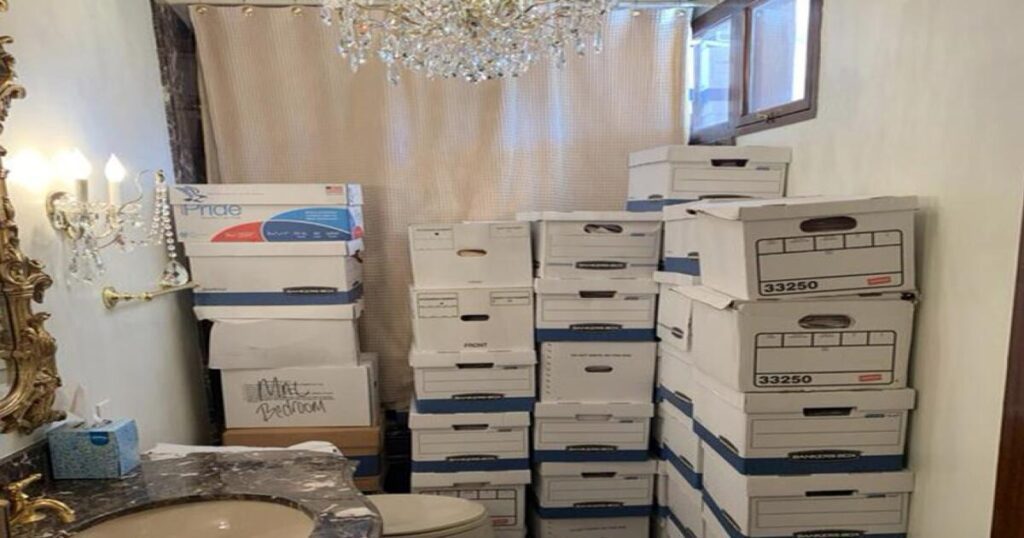A federal judge has refused to dismiss a classified documents lawsuit against Donald Trump, ignoring defense arguments that a decades-old law allows the former president to keep sensitive records after he leaves office.
Trump's lawyers cited a 1978 law known as the Presidential Records Act to demand that the case, one of four against the presumptive Republican nominee, be dismissed before trial. This law requires presidents upon leaving office to hand over presidential records to the federal government, but allows them to keep purely personal papers.
Prosecutors on the team of special counsel Jack Smith countered that this law had no connection to a case involving the mishandling of classified documents, and said that the records that Trump allegedly stored at his and Mar-a-Lago resort were undoubtedly presidential records, not personal. The files therefore had to be returned to the government when Trump left the White House in January 2021.
US District Judge Eileen Cannon, who heard arguments on the matter last month, on Thursday allowed the case to proceed in a three-page order rejecting the Trump team's claims.
She wrote that the 40-count indictment against Trump “does not reference the Presidential Records Act” and does not “rely on that law for purposes of citing a crime.”
The ruling represents a modest win for Smith's team, which has been trying to push the prosecution to trial this year while also expressing growing frustration, including earlier this week, with Cannon's oversight of the case. Trump's other motions to dismiss the indictment remain unresolved by a judge, the trial date is in flux, and additional legal disputes have slowed the case's progress.
In Thursday's ruling, Cannon also defended an order issued last month requiring lawyers for both sides to draft possible jury instructions and respond to two different scenarios in which she appeared to continue hearing Trump's presidential records argument.
The order drew a sharp rebuke from Smith's team, with prosecutors in a filing this week calling her premises “fundamentally flawed” and warning that they were prepared to appeal if she went ahead with jury instructions they considered faulty.
“The court’s order requesting preliminary draft instructions on certain counts should not be misconstrued as a final definition declaration of any essential element or defense asserted in this case,” Cannon wrote. “And it should not be construed as anything other than what it was: a genuine attempt, in the context of the upcoming trial, to better understand the competing positions of the parties and the questions that will be presented to the jury in this complex case of first impression.” “.
Thursday's ruling is the second time in as many months that a judge has rejected one of Trump's suggestions to dismiss the case. In March, it rejected an argument that the law underlying the bulk of the charges was unconstitutionally vague and thus required the indictment to be dismissed.
Cannon has yet to rule on Trump's other efforts to dismiss the case, including arguments that presidential immunity protects him from prosecution and that he was subjected to “selective and retaliatory prosecution.”
Trump faces dozens of criminal charges related to mishandling classified documents, according to an indictment that alleges he improperly shared a Pentagon “attack plan” and classified map related to a military operation.
The case was initially set to go to trial on May 20, but Cannon heard arguments last month for a new date without immediately setting one. Both sides have said they may be ready for trial this summer, though defense attorneys have said Trump should not be forced to stand trial while awaiting the election.
Smith's team separately accused Trump of plotting to overturn the results of the 2020 presidential election, a case delayed by a Supreme Court review of his arguments that he is immune from federal prosecution. Prosecutors in Fulton County, Georgia, also accused Trump of trying to subvert the election in that state, although it remains unclear when that case will reach trial.
Jury selection is scheduled for April 15 in Trump's hush money criminal trial in New York.
The case centers on allegations that Trump falsified his company's internal records to hide the true nature of payments to his former lawyer Michael Cohen, who helped Trump bury negative stories during his 2016 presidential campaign. Among other things, Cohen paid porn actress Stormy Daniels $130,000 to suppress Her allegations of an extramarital sexual encounter with Trump years ago.
Trump pleaded not guilty and denied having any sexual encounters.
Tucker writes for the Associated Press. AP writer Alana Dworkin Richer contributed to this report.
